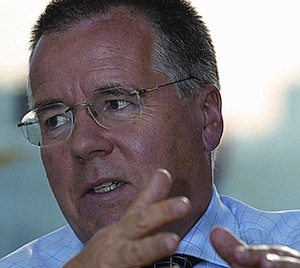One of the joys of the portfolio style of working that I am now able to follow is the variety of talented people that I meet.
That is particularly true of one enterprise that I am involved with The-Pensions-Net-Work www.the-pensions-net-work.com which is a discussion forum and meeting place for senior pensions professionals and those working in the pensions and retirement arena. All meetings are held under Chatham House rule which is why you rarely hear about them.
Our last meeting was exceptional both in terms of the content and quality of speakers which included Iain Anderson from Cicero talking knowingly on “Life after Brexit”, Kerrigan Procter CEO of L&G Capital providing some fascinating insights on “Inclusive Capitalism in Practice” and Neil Bage founder of Be-IQ speaking on “Building Behaviour into Retirement Planning”. If you have the opportunity to listen to Neil then I recommend you grasp it.
However what I want to discuss briefly in this article is one aspect that was covered in a panel session excellently organised by that marketing guru Lucian Camp on the subject of “How can we make pensions more interesting?” One of the panellists Caroline Hopper from Quietroom addressed the particular problems posed by the long term nature of pensions savings and highlighted how millennials in particular have failed to engage despite the success of auto-enrolment.
This struck a chord with me as I’d recently seen some data from a survey conducted by Expert Pension Claims – an organisation which deals with mis-sold pension and investment complaints – which apparently showed that only 27% of 21 to 30 year olds know how much money they and their employer are putting in to their pension and that 19% of people are “not bothering” with their pensions because they do not think there is any point.
One of Caroline’s hypotheses was that we need to find a way in which “millennials” can relate to their pensions and particularly their pension investments. She suggested that that might be achieved by making greater use of environmental, social and governance (ESG) investing. That is supported by another survey - conducted by L&G Investment Management – in which 53% of member respondents apparently said that they would engage more with their pension if they knew their pension was having a positive social impact. Over a quarter said they would even pay more into it. Interestingly these survey results seem to be rather at odds with the move to default funds and investment pathways.
There has been growing interest in ESG-style funds and investment portfolios but Caroline was suggesting a further step with individually designed ESG portfolios within the structure of a workplace pension. As I understand it these would be SIPPs. I am not an expert in this area but it seems to me that there is a compelling case for exploring this area further as it may provide new opportunities for providers, advisers and financial planners –not to mention wealth and investment managers.
Again it also flies in the face of the trend to “neutralising SIPPs” which l explored in my last article. Of course it opens the door to the potential for mis-selling if the right governance structures are not in place. I will have some further thoughts on this aspect in a future article.
John Moret is principal of MoretoSIPPs consultancy and one of the UK's most experienced SIPPs experts, commentators and speakers. He has worked for Suffolk Life and several other SIPPs providers.

